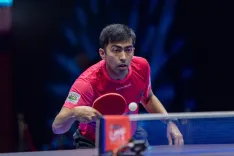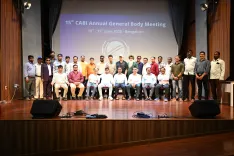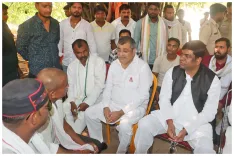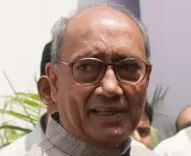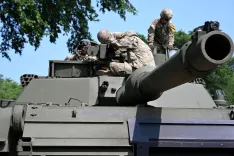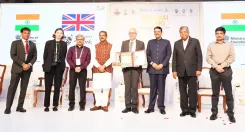Can Bharat Ruhil Overcome Adversity to Become India’s Fastest Triathlete?
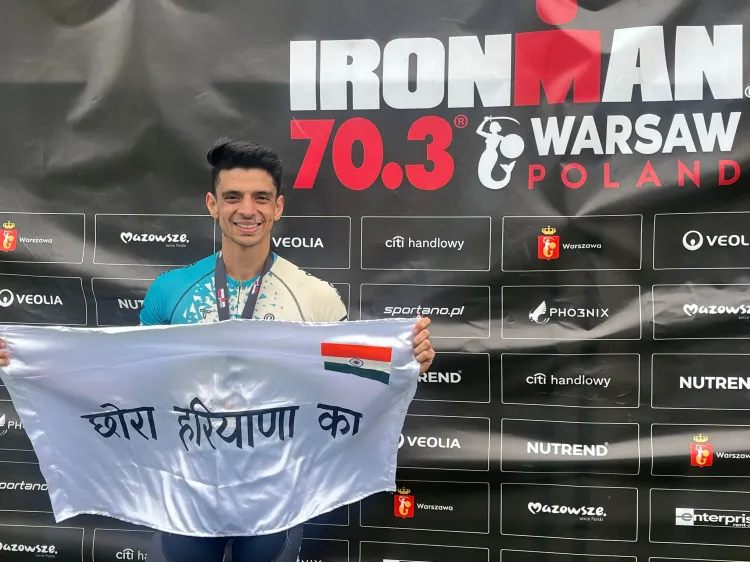
Synopsis
Bharat Ruhil’s inspiring journey from injury to becoming India’s fastest triathlete embodies resilience, determination, and relentless self-improvement. Faced with significant obstacles, Ruhil not only overcame them but also contributed to coaching and fostering the next generation of athletes. Discover how he navigated through challenges and emerged stronger than ever.
Key Takeaways
- Bharat Ruhil's journey illustrates resilience in overcoming significant challenges.
- Transitioning to triathlon opened new opportunities for his athletic career.
- Swimming poses unique challenges due to infrastructural limitations in Delhi.
- His commitment to coaching reflects a desire to uplift future athletes.
- Funding is a critical aspect of pursuing triathlon professionally.
New Delhi, June 14 (NationPress) In the realm of endurance sports, the triathlon requires an exceptional mix of determination, discipline, and resilience. For Bharat Ruhil, a dedicated triathlete hailing from Delhi, this resilience has been shaped by personal challenges, recovery processes, and an unwavering commitment to self-betterment.
In an exclusive interview with IANS following his recent performance at the Ironman 70.3 Warsaw in Poland, where he achieved a personal best of 4 hours and 37 minutes, Ruhil recounted his incredible journey from injury to elite competition. “It was a good practice. I clocked my personal best time of 4 hours and 37 minutes,” he stated, just after the event in Warsaw, which presented unique challenges due to its temperature and terrain.
Ruhil’s entry into the world of triathlon was not typical. He started his athletic career in running but faced frequent injuries, leading to a significant knee surgery that nearly derailed his ambitions. “My journey began with running, but injuries were a constant battle. Eventually, I had to undergo knee surgery. Post-rehab, I was determined to remain in sports, so I attempted one last time and entered the triathlon world in 2017.”
The transition proved to be challenging. Ruhil kicked off with the Olympic distance format and quickly demonstrated his potential. His significant breakthrough occurred at the 2019 Ironman Goa, where he secured fifth place in his age group, thereby earning a slot for the World Championship.
“I worked hard, finished fifth in my category, and qualified. The Championship was scheduled for New Zealand in 2020, but with the onset of COVID, everything was postponed.”
As he was regaining his momentum, another major setback hit — a devastating road accident in 2021 while training for the Commonwealth Games trials in Finland. “While riding, I was struck by a car. It was severe, and unfortunately, the trials were only a week away. I couldn’t compete and underwent 5–6 months of rehab, including a month of complete rest. That period was incredibly tough.”
Yet, Ruhil’s narrative is one of comebacks. In 2023, he participated in the World Championship in Finland, marking a pivotal moment in his career. That year also witnessed him achieving his fastest timing yet in Warsaw, solidifying his status as one of India’s promising triathlon athletes.
Despite his overall progress, Ruhil acknowledges that swimming continues to be his greatest hurdle, not due to a lack of effort, but because of infrastructural constraints in his city. “In Delhi, we lack access to open water. Unlike cities like Pune and Mumbai, which have lakes, we have to rely on pool training. This is vastly different from swimming in open water.”
“In open water, you must look ahead to maintain your course, something we can’t practice in pools. Moreover, European races often feature water temperatures ranging from 14 to 18 degrees Celsius, which is quite unfamiliar for us in India, adding to the difficulty.”
The triathlon comprises three disciplines — swimming, cycling, and running. Ruhil believes excelling in all three demands extraordinary commitment, especially when training conditions do not fully meet the sport's requirements.
Currently, with the Commonwealth and Asian Games off the table — partly due to his accident and also because Ironman formats are not included in these events — Ruhil’s goals are sharply defined. “My aim is to become India’s fastest triathlete. I also coach aspiring athletes, yet my primary focus remains on competition.”
He elaborates on the distinctions between formats: “While triathlon is part of the Olympics, Ironman is a separate category. The Olympic triathlon includes 1500 meters of swimming, 40 km of cycling, and a 10 km run. The Half Ironman — also referred to as 70.3 — encompasses 1.9 km swimming, 90 km cycling, and 21 km running. Ironman stands apart entirely. The Olympic distance is included in the Asian Games, but Ironman is not.”
Bharat previously trained for shorter distances in preparation for the Commonwealth Games, but his accident redirected his ambitions back to Ironman. “At this point, I’m not looking towards the Asian Games. I’m concentrating on Ironman events. I have two races scheduled — one in Germany in September and another in December.”
Funding, which is a crucial issue in a self-driven sport like triathlon, has required Ruhil to shoulder much of the financial load alone, particularly in the beginning. “Triathlon is quite costly. Initially, I had to manage most of the costs myself. Thankfully, I now have a sponsor who has supported me through my last three events.”
His current support system includes a strength and conditioning coach based in Australia, and Ruhil actively contributes to the sport by producing coaching content for aspiring athletes. “I also collaborate with a strength and conditioning coach in Australia. Besides competing, I create coaching videos for budding athletes.”
Competing internationally demands not just physical preparedness but also logistical and climatic adjustments. Ruhil outlines his preparation: “Typically, it takes about a week to acclimate to international conditions. I arrived in Poland on August 4, and it took nearly a day to recuperate from the flight. Following that, I had to set up my bike, check everything, undertake practice rides and runs, and adapt to the weather. I had to submit my running and cycling gear by August 7 — you can’t handle that on race day; everything must be organized in advance.”



